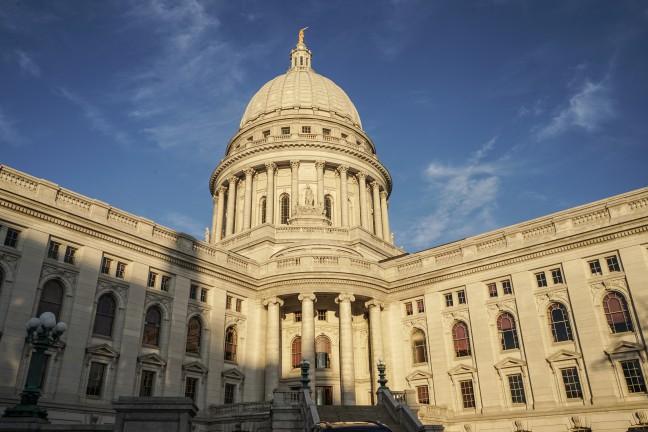The Wisconsin state Assembly passed the two month overdue 2017-19 biennium budget in a 57-39 vote Wednesday.
All Democrats and five Republicans voted against the bill.
The $76 billion spending plan includes investment to K-12 schools, eliminates several taxes and keeps property taxes low, Assembly Speaker Robin Vos, R-Rochester, said in a statement.
“Everyone in Wisconsin can find something to like in this budget from an increased investment in worker training to the extended tuition freeze for the UW System schools,” Vos said. “It’s also a fiscally responsible budget that ends in a positive balance and maintains the largest rainy day fund in state history.”
Rep. Dave Murphy, R-Greenville, said in a statement the budget is “responsible and accountable to Wisconsin families.”
But Rep. Chris Taylor, D-Madison, said the budget is “rigged against working families” and criticized it for favoring the wealthy.
“Instead of creating an economy that works for most working Wisconsin families, Republicans continue to prioritize an economy that works only for those at the top,” Taylor said.
Joint Finance Committee approves transportation package, property tax cuts
Rep. Katrina Shankland, D-Stevens Point, along with other Democrats, said in a statement the bill fails to invest in transportation infrastructure.
“With this budget, Republican legislators have made it clear where their values lie — with private voucher schools over public schools, with wealthy special interests over working families and with even more transportation debt and delayed road projects,” Shankland said.
Despite voting for the bill and commenting on the “positive impact” the bill will have on Wisconsin residents, Rep. John Spiros, R-Marshfield, said in a statement there is still “work to be done” with transportation.
“Investment in infrastructure is essential, and I am committed to continuing to look at more options in the future,” Spiros said. “This transportation plan is a start, not a solution.”
UW to receive smallest amount of funding from UW System budget
Before the budget can make it to Gov. Scott Walker’s desk, it must first pass the state Senate. If it does not pass the state Senate, the bill will head back to the state Assembly.
It is unclear whether or not Senate Republicans have the votes to pass the current version of the budget.
Senate Majority Leader Scott Fitzgerald, R-Juneau, said he has five or six senators who still have concerns regarding the budget, according to Wisconsin Radio Network.
If all Senate Democrats vote against the budget, Fitzgerald would need 17 Republican senators to vote for it.
The state Senate will discuss the budget Friday.














